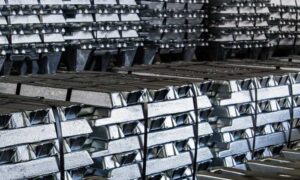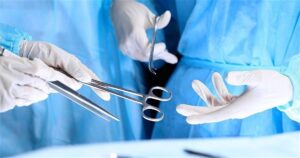
Global lead and zinc production will exceed demand in 2025, according to the International Lead and Zinc Study Group (ILZSG).
Refined lead production is expected to increase by 1.9% to 13.27 million tons this year. This will mainly be driven by increased production in China, India, Mexico and the US, while Europe and South Korea are expected to reduce output.
Global lead consumption may increase by 1.5% to reach 13.19 million tons. Growth is expected, in particular, in Brazil, India and Japan, and a decline in South Korea.
In the US, demand for metal fell by 8.3% last year, but is expected to rise by 4.3% in 2025. In Europe, due to the decline in car production in 2024, lead consumption decreased by 4.4%, and is expected to increase by 1.8% this year. Consumption in China is expected to grow by 0.9% in 2025 after a 1.3% decline last year.
Thus, in 2025, the global market will have a surplus of lead in the amount of about 82 thousand tons, ILZSG said in a statement.
Refined zinc production in the world this year is expected to increase by 1.8% to 13.73 million tons.
Production in China will increase by 3.8% (after falling by 3.4% in 2024). Output is also expected to grow in Norway, where Boliden has recently completed the expansion of its Odda plant’s production capacity by 150 thousand tons per year. Meanwhile, zinc production is expected to decline in Italy and Japan due to the closure of Glencore and Toho Zinc’s facilities in these countries, as well as in South Korea.
Consumption of the metal may grow by 1% this year to reach 13.64 million tons. In particular, demand in China is expected to increase by 0.9% (after a 1.9% decline last year). Experts also expect consumption to rise in Brazil, India and Turkey, as well as decline in South Korea.
“Any deterioration in the global economic outlook due to uncertainty over trade policy is likely to have a negative impact on the outlook for zinc demand,” the report says.
The global zinc surplus in 2025 is projected at 93 thousand tons.
The ILZSG, established by the United Nations in 1959, provides information on supply and demand for zinc and lead and conducts research on the situation on the world markets for these metals. The Group’s members are Australia, Belgium, Brazil, Bulgaria, China, Finland, France, Germany, India, Ireland, Italy, Japan, South Korea, Mexico, Morocco, Namibia, Norway, Peru, Poland, Portugal, Russia, Serbia, Sweden, Turkey, the United States and the European Union. These countries account for more than 85% of the world’s lead and zinc production and consumption.

After the war is over, Ukraine will become one of the world’s largest centers for reconstructive surgery and treatment of mine-blast injuries, predicts plastic surgeon and founder of the Lita Plus clinic Serhiy Derbak.
“In 2014, when we started operating on wounded soldiers, it became the starting point for modern reconstructive surgery in Ukraine. And after 2022, with the outbreak of a full-scale war, the number of reconstructive surgeries and new reconstructive surgery centers in Ukraine became unprecedented. I am convinced that after the war is over, Ukraine will become one of the strongest centers in the world in terms of experience in dealing with war and mine-blast injuries,” he said in an interview withInterfax-Ukraine.
Derbak noted that “today in Ukraine there is a real boom in the development of microsurgery and reconstructive surgery.”
“Although I wish these circumstances had not arisen, this is a time of extraordinary professional development for professional surgeons. After all, mine-blast injuries are unpredictable, each case is unique and requires maximum skill,” he said.

In March 2025, dairy farms of all categories of producers produced 556 thousand tons of raw milk, which is 117 thousand tons or 27% more than in February 2025, but 20 thousand tons or 4% less than in March 2024, according to the Association of Milk Producers (AMP).
The industry association noted that the volume of milk yield in Ukraine in January-March 2025 amounted to 1.44 million tons, which is 53 thousand tons (-4%) less than last year. In March 2025, the share of enterprises in the production of raw milk amounted to 49%, and households – 51%.
According to the report, in March 2025, enterprises produced 272 thousand tons of raw milk, which is 33 thousand tons more (+14%) compared to February 2025 and 16 thousand tons more (+6%) compared to March 2024. In January-March 2025, MTFs produced 771 thousand tons of raw milk, which is 37 thousand tons (+5%) more than in the previous year.
In March 2025, milk yields in private households amounted to 284 thousand tons, which is 84 thousand tons more (+42%) than in February 2025, but 37 thousand tons less (-11%) than in March 2024. In January-March 2025, the private sector produced 676 thousand tons of raw milk, which is 90 thousand tons (-12%) less than in the previous year.
AVM analyst Giorgi Kukhaleishvili emphasized that in the first quarter of 2025, the number of regions where MTFs increased their production of raw milk increased. Khmelnytsky, Ternopil and Zhytomyr regions are among the new leaders in terms of production. However, the increase in milk yields in the industrial sector is not entirely beneficial for the dairy industry amid the unstable situation on the finished dairy products market, the global dairy market, and the unstable dynamics of purchase prices.
“The volume of dairy production in Ukraine is currently outstripping the volume of its sales. The domestic market is experiencing a decline in demand for dairy products amid intensified rocket and bomb attacks by the Russian occupiers on cities with a population of over a million people and the outflow of their residents abroad. At the same time, dairy processing enterprises are striving to help restore demand for dairy products from the population through discounts and promotional offers in retail chains,” the business association explained.
Further increase in cheese imports is also a threat to the development of the industry, at the current rate of imports, by the end of 2025 the share of imported cheese in the Ukrainian market may reach 80%, which will force domestic cheese factories to stop their work and the situation with a surplus of milk may worsen.
The EBA emphasized that the potential threat of foot-and-mouth disease, which has been reported in Hungary and Slovakia, is a challenge for the Ukrainian dairy industry.
“The spread of the disease creates risks of increased culling of infected livestock and the introduction of quarantine restrictions on farms, a ban on the export of dairy products from Ukraine,” the industry association summarized.

Refined copper production in the world in 2025 will increase by about 2.9% to 28.9 million tons, according to the International Copper Study Group (ICSG).
This will be driven by the expansion of production capacity in China and the launch of new facilities in other countries, primarily in Indonesia, India and the Democratic Republic of Congo (DRC).
In 2026, copper production is expected to grow by 1.5% to over 30.8 million tons.
Demand for copper this year is expected to increase by 2.4% to 28 million tons. “Given the uncertainty surrounding international trade policy, which is likely to weaken the global economic outlook and negatively impact copper demand, the growth rate estimate has been revised downward from the group’s September forecast, which assumed a 2.7% increase,” the report said.
In 2026, global copper consumption may increase by 1.8% to about 28.5 million tons.
At the same time, demand in China is projected to grow by about 2% in 2025 and 0.8% next year, according to experts.
In 2024, the world recorded a copper surplus of 138 thousand tons. This year, the surplus of the metal on the global market is expected to be about 289 thousand tons, and in 2026 – 209 thousand tons.
When making forecasts, ICSG understands that the situation on the global market can change under the influence of numerous factors, the report says.
The International Copper Study Group, established in 1992, is an intergovernmental organization that serves as a vehicle for international discussion and cooperation on copper-related issues. The ICSG is the only multilateral institution dealing with copper production, consumption and trade. The group consists of 25 countries, including the European Union, Kazakhstan and Russia.

The volume of cattle slaughter in Ukraine in March almost doubled (+97%) compared to the previous month, to 20.1 thousand tons from 10 thousand tons, but was 10% (2.3 thousand tons) less than in March 2024, according to the Association of Milk Producers (AMP).
The industry association noted that in January-March 2025, slaughter volumes in Ukraine amounted to 44 thousand tons, which is 3 thousand tons (-7%) less than in the previous year. In March 2025, enterprises produced 33% of beef from the total slaughter volume, and households – 67%.
The AMP cited preliminary data from the Ministry of Agrarian Policy and Food, according to which in March this year the volume of cattle slaughter at enterprises reached 6.6 thousand tons, which is 400 tons more (+ 6%) than in February 2025, however, 300 tons less (-4%) than in March 2024. In the first quarter of 2025, slaughter volumes at agricultural enterprises amounted to 13.3 thousand tons, which is 300 tons (+2%) more than in the same period last year.
In March 2025, the slaughter of cattle in households amounted to 4 thousand tons, which is 3 thousand tons less (-40%) compared to February 2025 and 1 thousand tons less (-13%) compared to March 2024. In January-March 2025, slaughter volumes in households amounted to 19.9 thousand tons, which corresponds to the figures for the first quarter of 2024.
At the same time, the total slaughter of farm animals, not only cattle, but also pigs, sheep, and birds in the first quarter of 2025 amounted to 749.4 thousand tons, which is 3% less than in January-March a year ago.
The business association said that in March 2025, slaughter volumes increased most significantly at agricultural enterprises in Zakarpattia (+214%), Zaporizhzhia (+71%), Mykolaiv (+41%), Kharkiv (+42%), Chernivtsi (+32%) regions compared to March last year.
Most of the slaughtered animals were sold by agricultural enterprises in Vinnytsia (155.4 thousand tons), Cherkasy (102.6 thousand tons), Dnipropetrovs’k (87.9 thousand tons), Lviv (44.8 thousand tons) and Kyiv (31.4 thousand tons) regions.